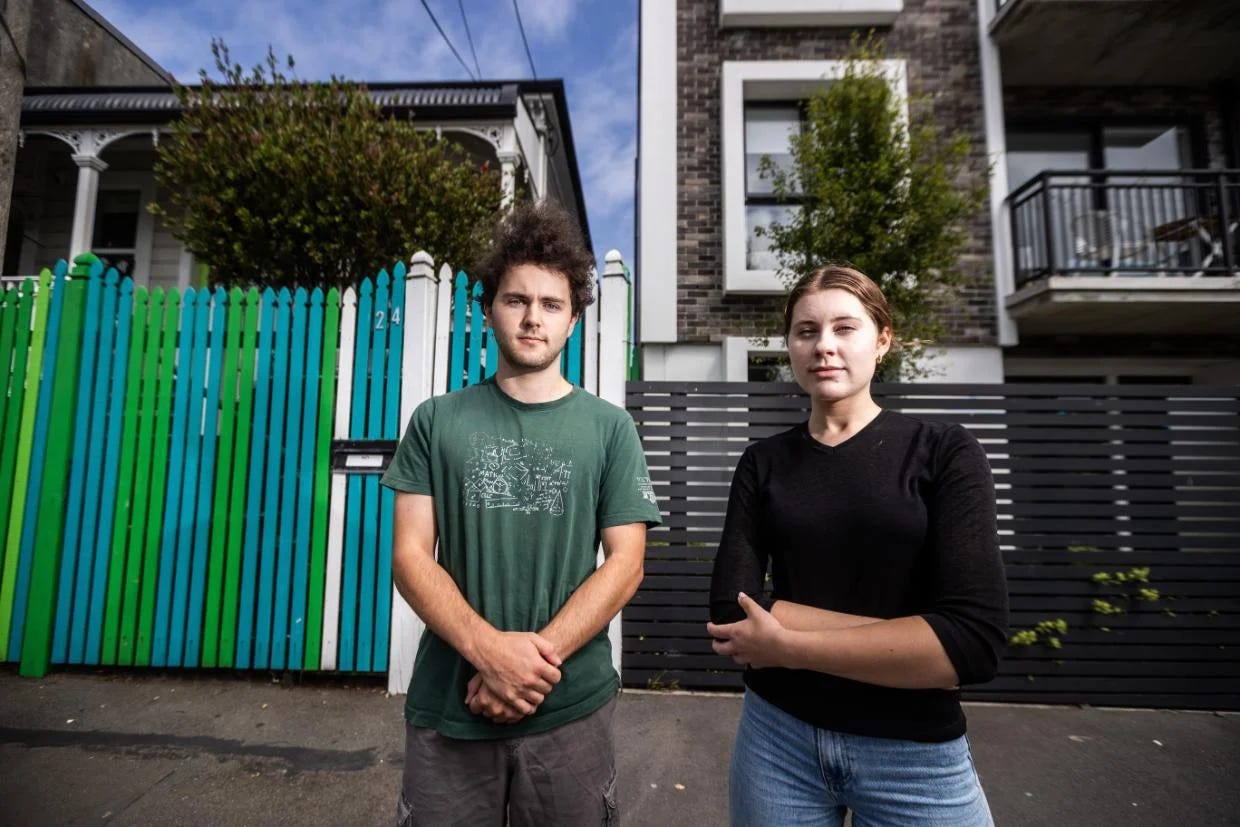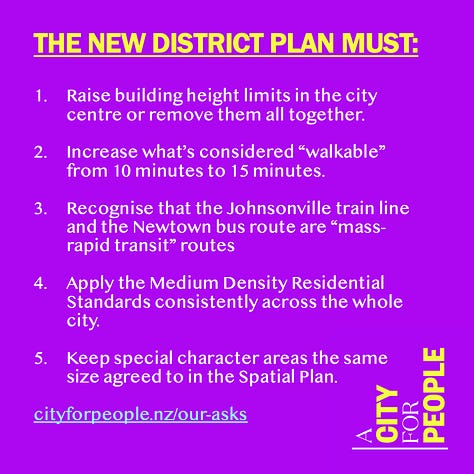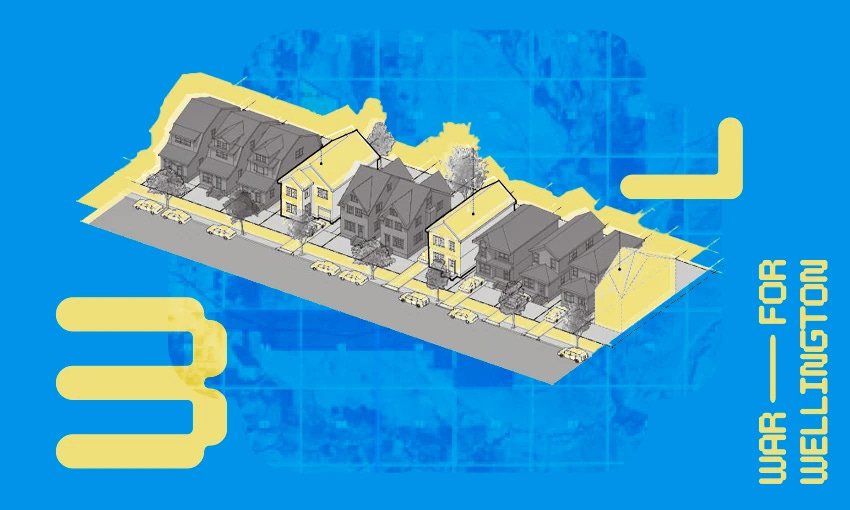Updates on the campaign and a save the date
Councillors vote on the District Plan on 14 March. See you there?
Councillors will vote on the District Plan on 14 March.
The council has published the decision making process leading up to the final vote on the District Plan. TL:DR the big vote will be on 14 March - save the date! This meeting (and the briefings that precede it) are open to the public. Let’s pack out their meeting room and remind our councillors that we want more homes, in the right places. They must vote yes to housing in the District Plan.
Catch us at Urban Nerds on Tuesday next week!
Our volunteers will be at the monthly Urban Nerds networking event on Tuesday 13 February at Waitoa on Victoria Street. We’re keen to chat about the campaign, and answer any questions you may have. See you there?
City for People in the media.
Our spokespeople, Jesse and Elena, were on the front page of The Post this week: Housing debate is back, calling on councillors to commit to our five asks.

Elena Wood, 21, a law student involved in the campaign through Generation Zero, said the coalition’s points could still be adopted because they had been discussed at the hearings.
“[Councillors are] free to have regard to our asks as long as they went before the panel.”
Richardson, 22, said the vote was the key decision for determining whether Wellington became more affordable housing-wise or continued on its trajectory of spiralling rents.
“If we miss this opportunity, we're going to see the current situation continue into the future. So it's really important that we get this action point right.”
The asks for the campaign were reasonable and normal compared to other cities in New Zealand like Auckland, he said.
“We’re not looking to make sweeping changes, we’re just looking to allow more houses so people can live comfortably.”
And The Spinoff has launched a special editorial project on the on the District Plan vote, including a dedicated newsletter that you can sign up for here.
The new District Plan will be the single most important document for this city in our lifetime, but it risks flying under the radar, anchored down by layers of impenetrable council bureaucracy (the draft plan is 1266 pages long and filled with technical jargon). Our goal at The Spinoff is to fight back against that. We want to turn this into a story that ignites the entire city, so every Wellingtonian has at least some idea of what is happening, why it matters, and has the chance to call their local councillor and demand change.
We recommend The Spinoff’s simple guide to Wellington’s District Plan and why you should care about it. If you’ve still got questions, you can check out our FAQs page:
I contributed an opinion piece to The Post on Friday, setting out our five asks: A bold District Plan will free us from our housing doom loop.
Ten years ago, Housing Minister Nick Smith said “we have got a constipated planning system, bogging new residential construction”. It’s time for some fibre: zoning reform.”
[…]
If we can unlock housing supply, we can unlock housing affordability – it’s boring, basic, Economics 101. Wellington’s new District Plan is a golden opportunity to change the zoning rules and enable more homes to be built.
The big news this week: the Independent Hearings Panel has released it’s first set of recommendations to the council… and it’s bad. Really bad. We were expecting well-reasoned, evidenced-based advice from experts. Instead we got a set of nonsensical hot takes from a bunch of people who slept through Economics 101 in school.
We’re glad to see some people were awake in class though - the Panel’s advice has been roundly slammed in the press.
From Joel at The Spinoff: The first recommendations for the future of Wellington’s housing are in, and they’re shit.
To start, the panel considered two very tricky questions: would making it easier to build more houses lead to more houses being built? And would an increase in housing supply help improve housing affordability?
It might seem like a simple question for anyone who learned about supply and demand in NCEA level one economics, or even a toddler who has grasped the basic concepts of cause and effect. Not so much for the Independent Hearings Panel: “We agree that enabling intensification does not, of itself, improve or even address affordability.”
This would be news to the authors of dozens of studies worldwide showing that enabling intensification and providing for growth does in fact improve and address affordability.
And in The Post: Housing intensification report criticised for ‘scoffing’ at economics.
Economist Stuart Donovan from Motu Research said the conclusions were “contrary to a large body of economic evidence formed from studies both in New Zealand and overseas.”
[…]
Theodore Heeringa from affordable housing advocacy group A City for People said the panel had got it wrong and misunderstood the evidence about how planning regulations could lead to more affordable homes. “Constricting housing supply does not help the housing crisis,” he said.
Thank you for your donations!
We’d like to extend a huge mihi to all the people who have made a donation in the last week to support our campaign. So far, we’ve raised $2400. Your koha will help us run impactful ad campaigns and make sure all eyes in Wellington are on the District Plan vote.
Can you share our asks on social media?
Help us spread the word and make sure councillors can’t ignore our voices when they vote on March 14. Look for our posts on Twitter @CityforPeopleNZ, Instagram @cityforpeoplenz, and Facebook.



It’s been a massive week for our campaign. This is a fight that we can win - we’ve done it before, and we can do it again. Together, we can convince our council to make sensible choices that enable more homes in Wellington.
Ngā mihi nui,
Eleanor, and the City for People team.

